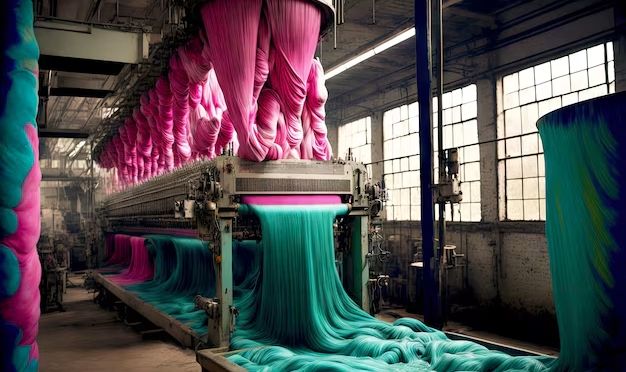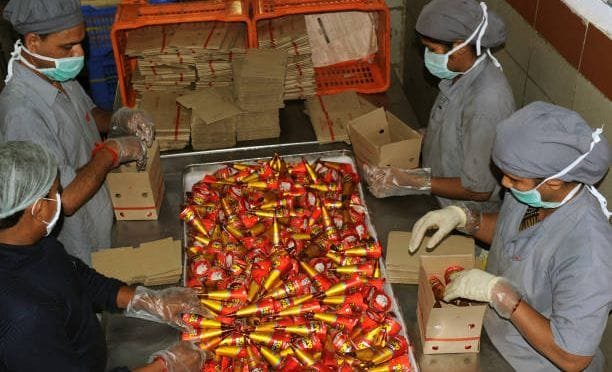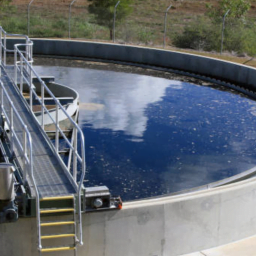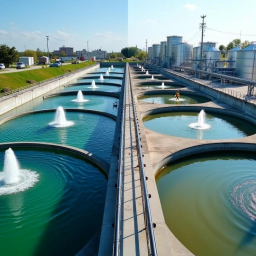
Effluent Treatment Plants (ETPs) play a vital role in ensuring that industries comply with environmental regulations by treating wastewater before discharge. With stringent government norms and growing environmental awareness, ETPs are indispensable for sectors that produce significant quantities of wastewater containing harmful contaminants. Below, we explore the top 5 sectors where effluent treatment plants are critical.
1. Textile and Dyeing Industry

The textile and dyeing industry is one of the largest producers of wastewater, containing high concentrations of dyes, chemicals, and suspended solids. Effluents from these processes are often toxic and non-biodegradable, making ETPs essential for treating:
- Dyes and pigments
- Detergents and surfactants
- Heavy metals
Why ETPs Matter:
ETPs in this sector focus on chemical, biological, and physical treatments to remove contaminants, ensuring compliance with discharge standards. They also enable the recycling of treated water for reuse in manufacturing processes, promoting sustainability.
2. Pharmaceutical and Chemical Industry

Pharmaceutical and chemical industries generate effluents rich in organic and inorganic chemicals, active pharmaceutical ingredients, and solvents. These effluents pose severe risks to water bodies and aquatic life if untreated.
Key Challenges:
- High Biochemical Oxygen Demand (BOD) and Chemical Oxygen Demand (COD)
- Presence of toxic and non-biodegradable compounds
ETP Solution:
Customized treatment systems that incorporate advanced technologies such as reverse osmosis (RO), activated carbon filtration, and chemical neutralization are used to treat complex effluents effectively.
3. Food and Beverage Industry

The food and beverage sector produces significant amounts of organic waste, oils, fats, and suspended solids. Untreated effluents can lead to the depletion of oxygen in water bodies, causing ecological imbalances.
Sources of Effluents:
- Processing and cleaning operations
- Fermentation and brewing processes
- Packaging and washing activities
ETP Benefits:
Effluent Treatment Plants in this sector focus on biological treatment methods like anaerobic digestion and activated sludge processes to break down organic matter, ensuring safe water discharge or reuse.
4. Leather and Tannery Industry

Tanneries are known for their heavy water usage and discharge of highly toxic wastewater containing chromium, sulfides, and organic matter. Effluents from this sector are challenging to treat due to their chemical complexity.
Treatment Objectives:
- Removal of heavy metals such as chromium
- Neutralization of acidic and alkaline wastewater
- Reduction of organic loads
How ETPs Help:
ETPs for tanneries include processes like chemical precipitation, filtration, and sludge management to meet environmental standards while enabling water recycling.
5. Pulp and Paper Industry

The pulp and paper industry generates wastewater containing lignin, chlorinated compounds, and high BOD/COD levels. The high volume and pollutant concentration of these effluents make them particularly challenging to treat.
Key Pollutants:
- Organic and inorganic compounds
- Suspended solids
- Chlorinated organic compounds
ETP Solutions:
Multi-stage ETPs, including primary, secondary, and tertiary treatments, are employed to effectively remove solid waste, organic matter, and other pollutants, ensuring water reuse and environmental compliance.
Conclusion: Why Effluent Treatment Plants Are Essential
Effluent Treatment Plants are not just a regulatory requirement; they are a necessity for industries aiming for sustainable operations. The above sectors illustrate how crucial ETPs are in minimizing environmental impact and promoting water conservation.
If you are part of an industry that requires efficient wastewater treatment solutions, SUSBIO ECOTREAT offers state-of-the-art systems tailored to meet your needs. With advanced technology, energy-efficient processes, and expert support, SUSBIO ensures compliance and sustainability for businesses across various sectors.
Get in touch with SUSBIO today for innovative ETP solutions tailored to your industry.


















[…] 0 By Akshat Tyagi Latest Blogs December 6, […]